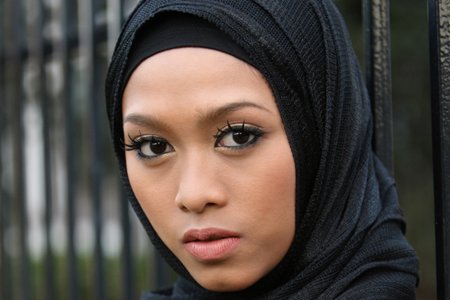The Role of Women in Qatar
The wife of the Emir, Her Highness Sheikha Mouza, has been
particularly prominent in her encouragement of women to
participate in public life. As explained on
QatarEmbassy.net:
"The Qatari woman exercises her full right to take her role
in society and act as a vital element within the development
process of the country. She has proven her ability to give
and participate alongside her fellow men in all assignments
and fields ...."
Government Departments/Committees
The Council of Ministers established the Women's Affairs
Department in 1996. The department was given the
responsibility of finding work opportunities compatible with
the Qatari women's nature and role in society, of proposing
policies and actions to provide maternal/child services, and
"developing and grooming women in order to raise the
standards of their competence and potential," and organizing
and supervising female cultural, religious and social
functions and activities.
Additionally, the Supreme Council for Family Affairs
established the Women Affairs Committee in 1998. This
committee is charged with proposing policies, plans and
programs to upgrade the potential of women culturally,
economically, and politically, as well as with encouraging
women to participate in public life and take available work
opportunities especially in the field of education. This
committee also sponsors the general rights of women, their
rights of assuming leading roles and key positions in
society and their role in development process. This Council
replaced the Women's Directorate within the Ministry of
Endowments and Islamic Affairs.
In 2001 the Supreme Council for Family Affairs set up the
"Children's Friend" telephone service as a help line to
receive calls from children, which showed that there was a
need for an official organization to deal with violence
against women and children. As a result, the Qatari
Institution for the Protection of Women and Children was
established in 2003.
Politics/Suffrage
Male and female Qataris aged 18 and older are able to vote,
and run as candidates for election. (See our article on the
political system of Qatar.) In
April 2003, the first woman cabinet minister was elected in
Qatar's second municipal council elections. In 2006, women
took two appointed positions — one, as the Minister for
Education and Teaching and the other as a deputy chairperson
in the National Human Rights Committee — and one elected
position, in the 17-person Chamber of Commerce and Industry.
Education
A section on women on the website of the Embassy of the State of Qatar in
Washington writes,
The field of education was the doorway through which women entered into the workforce. Statistics show that the number of Qatari female students in the State-run schools for the current academic year has risen at greater rates than the number of male students. Working women also represent a sizable ratio of 52% of the total workforce at the Ministry of Education.
Working women at Qatar University either as staff members or administrative personnel account for more than 50% of the total workforce of the University. They number 773 out of 1169 administrative personnel and 92 out of 176 staff members."
Healthcare
Also from the embassy website, according to the statistics of the Ministry of Civil Service
Affairs and Housing, the number of Qatari women working in
the field of health amounts to 500, compared to 357 men
working in the same field. Qatari women represent 21% of the
total number of 272 nurses working at the Ministry of Public
Health. Women also work in preventive health, which
comprises the sections of Contagious Disease Control,
Vocational Health, Environmental Health, Food Control,
Central Laboratories and Al Matar Clinic.
Law
The website also reports that women head three sections in the Ministry of Justice: the
Fatwah and Research, Legislation, Translation and Official
Newsletter sections. There are also 5 female legal advisors
in Fatwah and Legislation House and one in the State Cases
Section.
Arts, Literature, and Journalism
Women increasingly participate in all these areas.
Banking/Finance
Statistics show that there are 205 women working in national
and foreign banks. In 1998, a group of women started a
women's investment firm, which is the first of its kind in
the region: the Qatar Ladies Investment Company. And in
2000, the Businesswomen Forum was established.
Tourism
Women are increasingly working in tourism (e.g., as tour
guides at archeological sites), in museums, and in hotels.
For more information, see:

